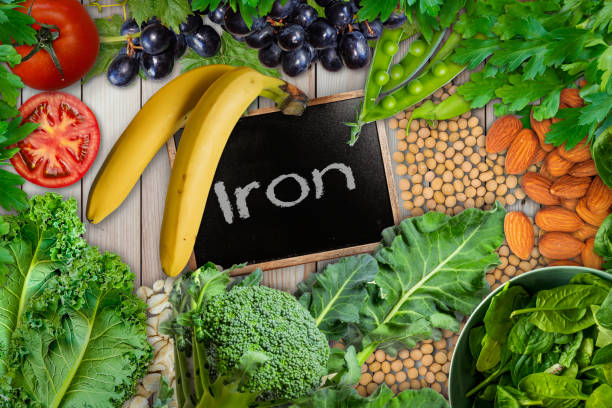Iron is a real MVP in our body, helping us stay energetic and focused. Surprisingly, over a third of adult women in the US don’t get enough iron. The main culprits? Periods and pregnancy. Iron deficiency can lead to vague symptoms like fatigue, brain fog, and dizziness. If not addressed, it can even cause anemia, which can be problematic during pregnancy.
Checking Your Iron Levels

Image from iStock
So, how do you know if you’re running low on iron? Well, it starts with a simple blood test. But not just any blood test; you should ask your doc to check your ferritin levels. Ferritin tells you how much iron you’ve got stored up, which is more informative than just looking at hemoglobin levels (which only tell you about anemia). The good news? Ferritin tests are usually covered by insurance.
The World Health Organization suggests that non-pregnant women should have ferritin levels of at least 15 micrograms per litre and hemoglobin levels of at least 12 grams per decilitre. But, some studies recommend higher levels: around 30 to 50 micrograms per litre for ferritin and 13 grams per decilitre for hemoglobin.
Tackling Heavy Periods

Image from iStock
Let’s talk about heavy periods. Many women might not even realize that their menstrual bleeding is excessive. If you’re soaking through a pad or tampon every two hours, bleeding for over seven days, or doubling up with a tampon and a pad, your period is on the heavy side.
If heavy periods are causing your iron deficiency, it’s time to chat with your gynecologist. They can help you rule out conditions like endometriosis or fibroids. Then, you might consider options to reduce your bleeding, like birth control pills or a hormonal intrauterine device (IUD). You can also try over-the-counter meds like naproxen or ibuprofen, or even a prescription medication called tranexamic acid.
Supplements and Nutrition

Image from iStock
When it comes to iron supplements, more isn’t necessarily better. You should aim for no more than 100 milligrams of iron per day to avoid side effects like constipation or queasiness. Most iron tablets you find will contain around 65 milligrams of iron. Taking iron supplements every other day is as effective and has fewer side effects than daily dosing.
And here’s a pro tip: avoid taking calcium supplements, milk, coffee, tea, or high-fiber foods at the same time as your iron supplement, as they can interfere with absorption.
Daily Iron Intake
When it comes to food, your daily iron intake depends on your age and gender. Men and women over 50 should aim for 8 milligrams of iron per day, while women between 19 and 50 need 18 milligrams. During pregnancy, the goal is 27 milligrams.
Iron comes in two flavors: heme and non-heme. Heme iron is found in animal-based sources like meat and fish and is more easily absorbed. Non-heme iron, found in plant-based foods like lentils and nuts, is also a great source. To boost non-heme iron absorption, pair it with foods rich in Vitamin C and avoid consuming tea or coffee alongside it.
Look for enriched foods, like fortified bread, pasta, and rice, as they contain extra iron. You can also get creative in the kitchen with tools like the Lucky Iron Fish or a trusty cast iron pan to up your iron game.
Takeaway
Iron deficiency is a real concern, especially for women. But with a simple blood test, managing heavy periods, and making wise dietary choices, you can keep your iron levels in check. Don’t let iron deficiency cramp your style – it’s time to boost your energy and overall well-being!
ALSO READ
How To Fight Iron Deficiency Anemia During Pregnancy
1 Out 2 Women Suffer From Iron Deficiency During Pregnancy
Iron for Pregnancy: How It Can Help?
 Together Against RSV
Together Against RSV SG60
SG60 Pregnancy
Pregnancy Parenting
Parenting Child
Child Feeding & Nutrition
Feeding & Nutrition Education
Education Lifestyle
Lifestyle Events
Events Holiday Hub
Holiday Hub Aptamil
Aptamil TAP Recommends
TAP Recommends Shopping
Shopping Press Releases
Press Releases Project Sidekicks
Project Sidekicks Community
Community Advertise With Us
Advertise With Us Contact Us
Contact Us VIP
VIP Rewards
Rewards VIP Parents
VIP Parents
